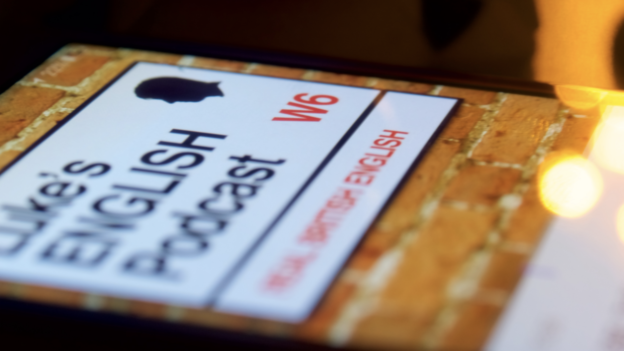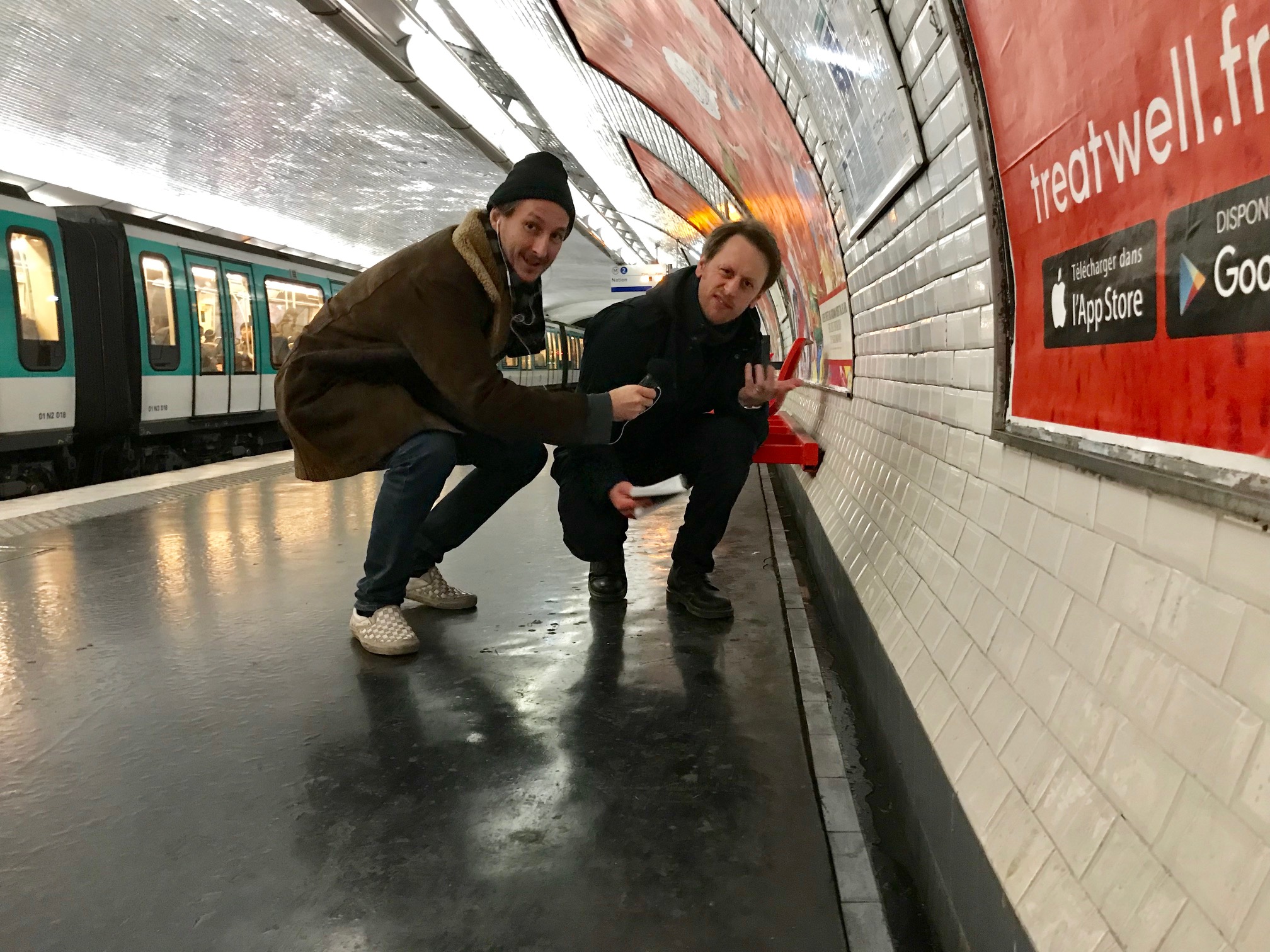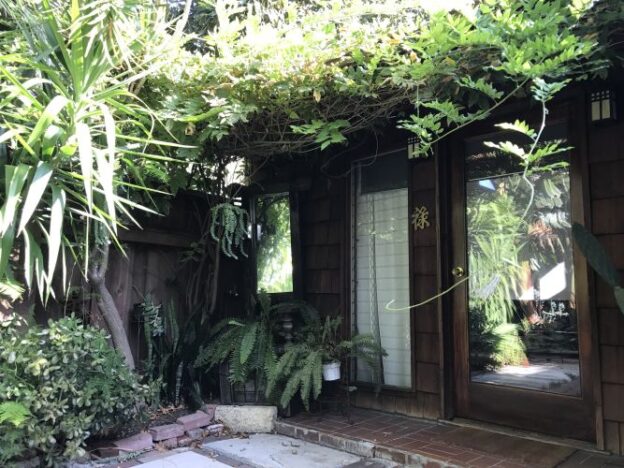Hi everyone, I’m back from my holiday so here’s a new episode of the podcast. In this one you’ll hear me talking about some recent news (including quite a big announcement) and then an account of what we did on holiday including some descriptions, opinions and stories. There’s talk of disturbing political events, dodgy car rental experiences, and a couple of beautiful cities where urban life meets wild nature. Enjoy!
[DOWNLOAD]
Notes & Transcript
Some of this text (below) is a full transcript of what I say in the episode, and other parts are just basic notes which I used while recording. So it’s not a 100% complete script.
Hello! I’m back from holiday!
How are you? Did you have a good August? Did you go anywhere?
Let us know in the comment section what you’ve been up to.
In this episode I want to just tell you about my holiday.
As you know, I’ve been away and it’s become sort of customary for me to give you a sort of holiday report whenever I come back from a trip away, so that’s what I’m going to do in this episode.
I’m going to describe places we visited, things we saw and I’ll tell a few little anecdotes along the way and give you my opinions on some things.
You will find some notes and transcriptions on the page for this episode if you want to read some of the words I’m saying, for example if you hear me say something in particular and you’re not sure what it is, check the episode page it will probably be there.
I don’t know how long this is going to be. I might divide it into a couple of episodes. It’ll be as long as it takes for me to just feel like I’ve told you the things that are on my mind and were on my mind while we were away.
Just before we start
- Andy interview part 2 (Episode 472) – it seems a lot of people were quite moved by Andy’s story. It was an emotional one. Andy deserves some respect for sharing it with us and for managing to get through such a terrifying experience when he was relatively young. It’s also interesting to see in the comments that many of you have had similar experiences to Andy or your lives have been affected by cancer in some way, and you have used running as a way to deal with it and so you found his account to be particularly poignant. Unfortunately cancer touches many people’s lives in one way or another. But a story in which someone beats it is always a reassuring boost to anyone who knows about it.
- Website only stuff – I hope you enjoyed some of the website only material I uploaded while I was away. There are three things in the episode archive that you won’t know about if you just subscribe to the audio podcast. One is an episode of Zdenek’s English Podcast in which he recorded us speaking in London when we met there and we had fun teaching some crime-related idioms and just making up some stuff about my supposed criminal past. The second thing is a DVD commentary track that I recorded with James for Star Wars Episode 4. We just sat down in his flat one evening, put on his Star Wars DVD and recorded our own commentary. That’s just for the Star Wars fans I suppose. You can just listen to it, or watch the film and listen at the same time and you’ll hear James and me discussing the various scenes, making fun of the film, doing some impressions of the characters and generally messing around over the top of the film. Then the third thing is a long musical mix that James and I did using his vinyl record collection. He has a lot of vinyl records, many of them original 7inch and 12inch singles from the 60s, 70s and 80s. We went through his records in a long mix and the plan was to go through a history of British music. THe mix has some speaking between the records and you’ll hear music all the way from 1961 to the mid 90s when we ran out of time. If you like music and you’d like to learn a bit about the UK’s musical history, check it out.
- Transcript projects – The Orion Team and Andromeda Team have been busy producing more and more transcripts. You can now find over 250 finished scripts and also many scripts which are 100% proofread. Go to the transcripts page on my website for more info. I’ll be updating that page soon to make it easier for you to find the transcripts.
So, the holiday.
Where did we go? And why?
We wanted to have kind of a blowout – that’s a fairly big holiday as a celebration because my wife is pregnant. Yes, she’s pregnant, we’re going to have a baby so we wanted to go on another big trip while it’s just the two of us before the baby arrives.
That’s right – my wife is pregnant. We’re going to have a baby in December.
That’s kind of a big deal isn’t it?
If you are now thinking of writing to me by email or in the comment section to send me a message about this, and you’re wondering what to write exactly. Here are some things that would be appropriate.
Congratulations!
Very happy for you!
Fantastic news!
That’s great!
When is it due?
Do you know if it’s a boy or a girl?
Do you have any ideas for names?
Are you ready?
Those are some appropriate things.
Basically, congratulating us and wishing us well.
Needless to say, anything other than that would be inappropriate, right?
No doubt some of you will choose to think about the podcast and how that might be affected by this oncoming change in my life.
Don’t worry, I’m not going to stop doing the podcast because I’m having a baby (correction: my wife is actually the one who is going to have the baby, I’m just going stand there, let her dig her fingernails into the back of my hand and hope for the best.)
It’s true, things are bound to change in my life because of this and certainly at the beginning when the baby is newly born it might be hard to record and upload episodes as regularly as normal, but I definitely plan to carry on the podcast because honestly, this podcast is like my job these days – it is a job because I get income from sponsorship. It is a job I thoroughly enjoy and that I chose for myself.
Confucius: Choose a job you love and you’ll never work a day in your life.
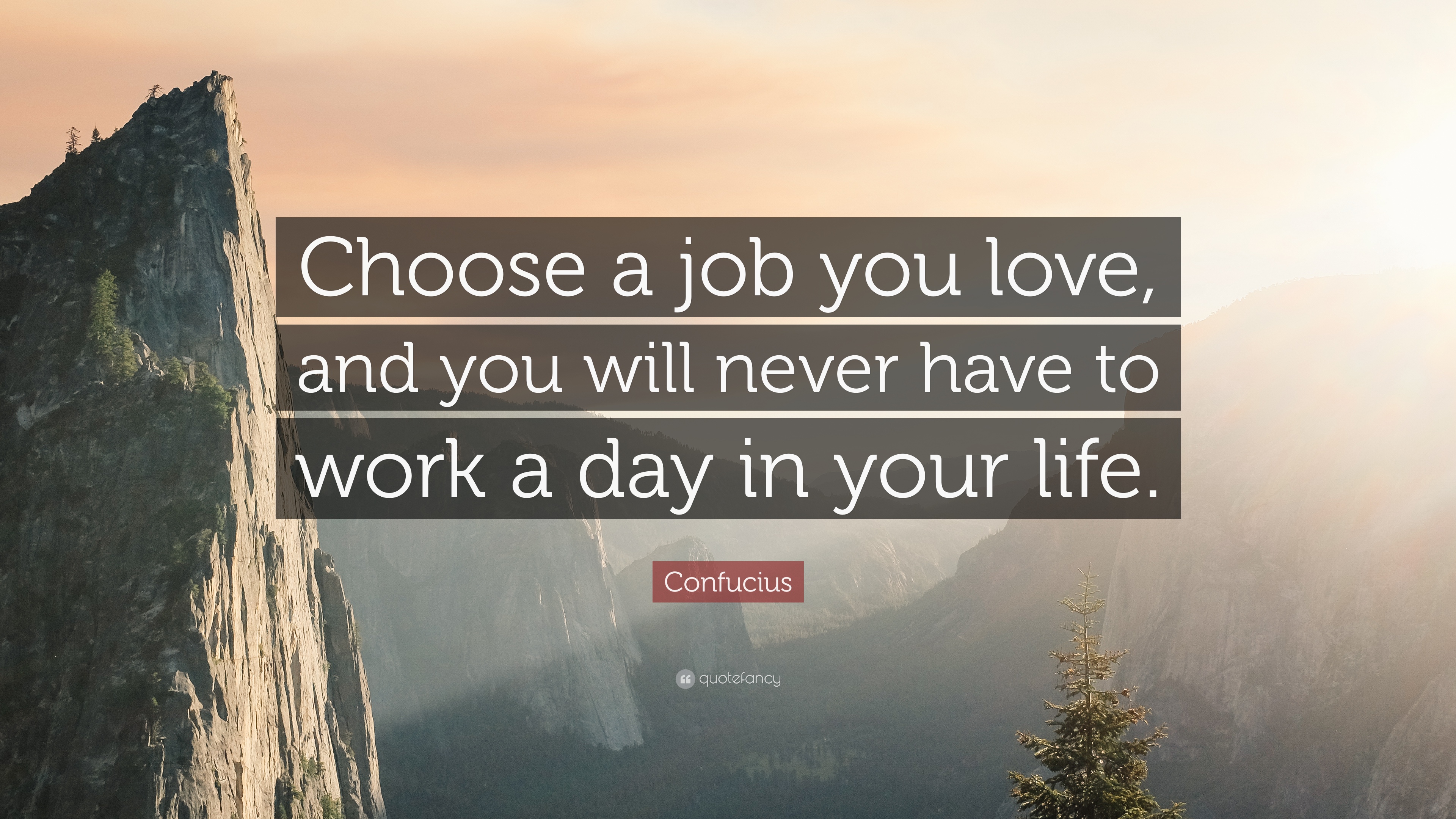
But it is a job nonetheless.
So there are several reasons why I plan to continue doing it. I’m not about to just abandon it.
So we chose to have a big trip to celebrate our last summer holiday just the two of us.
This would be our last holiday just the two of us! We kept saying, “It’s our last summer together!”
We’ve always gone abroad for our recent holidays – it seems alternating between parts of Asia and North America. Indonesia, California, Thailand, Japan.
But we think that with kids it would be easier and also safer to go on holiday in France or the UK.
So, this year we wanted one more fairly big trip!
2 years ago we had our honeymoon in California – we had an amazing time and had a few mini adventures involving bears outside tents and injuries on hiking trails (I made something like 8 podcast episodes about it! Called California Road Trip)
But there were things we didn’t manage to do or see on that trip and we always said “We’ll come back and do it next time” – at the time it helped deal with the disappointment of knowing were missing something, like for example the Grand Canyon or something else we really wanted to experience. “We’ll get it next time” we would say.
You can’t always see everything you want.
So this time we decided to have what we’re calling a ‘babymoon’ by going back to that part of the world to do the things we missed out on last time, just as a big final holiday just the two of us.
So, we went back to the USA – to Southern California for some days and then quite a lot of time exploring the National Parks and areas within the Navajo Nation territories. Places like Zion National Park, Bryce Canyon National Park, Monument Valley, Lake Powell and The Grand Canyon. Incredible landscapes, natural scenery and wild beauty – but also the kind of infrastructure that would make it possible for my pregnant wife to see all that stuff without it being too inconvenient or risky.
So this is like the California Road Trip 2 but this time we went to lots of other states too, including Nevada, Arizona and Utah.
Back to the USA and for some reason I feel slightly sheepish about telling you that.
Feeling sheepish = slightly embarrassed, uncomfortable or unsure about something.
Why?
Politics
Maybe because of the political situation over there which is throwing a weird shadow on everything. It feels like a controversial time to go over there, as if you’re somehow taking part in it, validating it or making a statement about it.
There was nothing political about our trip so that has nothing to do with it.
It was hard to escape the politics there though, but only on the TV, mostly.
In our everyday experience we didn’t see any trouble, unrest, no anti-Trump rallies, no white nationalists marching around. We saw a couple of bumper stickers saying MAGA and also a poster that said “Hillary for Prison 2016” but that was it. A couple of people we met talked about how ashamed they were that Trump was their president and seemed surprised that we still wanted to visit the country.
But generally speaking, everyone we met – including people I imagine had voted for Trump and others who hadn’t – everyone was very polite and nice to us and apparently to each other too.
On the TV though, there were scenes of violence and chaos as fighting broke out between white supremacists and anti-facists in Charlottesville Virginia, on the other side of the country.
On TV it was fighting, chaos, debates, angry tweets, all kinds of drama. I took a look at Twitter a few times and there was a lot of quite angry debate on there with strong opinions on both sides – those who were clearly against the white supremacist groups and those who defended them. It felt at times like the country was in turmoil.
Then we looked out of the window and it was just silence, maybe a car driving by.
It just showed me the sharp contrast between the reality of TV and the internet (because I think the internet is the new mainstream media – despite what all the YouTubers think – it’s fast becoming the mainstream media, especially when they get more views than many TV shows). It showed the contrast between what you get in the media, and what you actually experience, but then again we were just tourists and were probably just scratching the surface.
Reminds me of Bill Hicks https://www.youtube.com/watch?v=tGjuPJskNRE
I could go into all the complicated politics of what happened in Charlottesville but I think I won’t, in this episode.
I could describe the reasons why white nationalists were marching through a town in Virginia (on the other side of the country to California), why they were waving confederate flags, why some of them had swastika flags, why they were shouting Trump Trump Trump and MAGA. I could go into how they fought with anti-facist protestors, and how we’re not sure who started the fighting. I could talk about how someone from the white supremacist side drove a car into the anti-facists, killing a woman and injuring 20 others, and I could go into why many people feel so upset and angry with their president for not taking a clear position on these people who some describe as fascists and neo-Nazis, and how lots of people believe Trump is somehow encouraging these people.
I could go into all of that, but this episode is supposed to be about a travelling experience, not about a fight in a town on the other side of the country.
I might come back to it in another episode. I’ll see how I feel.
The Holiday
Itinerary
Paris – Montreal (half a da) – L.A. (a few days) – Vegas (one evening is enough!) – National Parks & Canyons – Vegas (for about 2 hours) – L.A. (a few more days) – Paris – Bed!
Cities and national parks. Urban areas with metropolitan life and amazing geological features in desert canyons.
Montreal
One afternoon and an evening.
We hung out mainly in the Mont Royal area and the old town.
- Reasons Montreal is an awesome place
People are really friendly and polite.
Everyone’s bilingual, which is amazing. It’s shows that it’s totally possible for a whole city to be bilingual. No need to panic and freak out about several languages being spoken in a city at the same time.
- It’s really diverse and in a good way because everyone’s really chilled out and there seems to be a lot of mixing between ethnic groups and not a lot of tension or anything.
- They have this food called “poutine” which is basically French fries covered in cheese and gravy – not that healthy but it is seriously tasty.
- The city has this nice colonial vibe to it and there’s loads of greenery everywhere. In the streets we walked down there were leafy trees, big bushes outside people’s houses, just plants growing everywhere – some of them planted, some of them weeds, but it felt like there was lots of plant life almost taking over the city, which is great. In Paris, it’s all stone and as a result it can feel a bit brutal. The greenery adds some much-needed calm to the place and also oxygen.
- The buildings are really cool-looking, with really interesting looking staircases outside them and awesome wrought iron balconies and verandas.
- Montreal has access to some amazing wilderness areas like local mountains, lakes and forests so you can get into nature really quickly while also enjoying the benefits of living in a city.
We were walking around going, “oh my word this is the perfect city for us”.
But, the bad side is that in winter it’s totally freezing and everything gets covered in 4 feet of snow, which makes life really inconvenient.
I know some of you listening to this live in similar places. What’s that like? How bad is that really?
Anyway, I loved Montreal and would gladly return there one day.
I like all the space, the convenience, the feeling of being in the ‘new world’, the vast natural landscapes and all that, but it’s Canada so you don’t get the feeling you’re in a completely crazy country where people shoot each other and stuff like that. I’d love to go back to Canada again one day. I did travel there for a month when I was 19 with my cousin Oliver and we had an amazing time then too. We’d very much like to go back there. We were even talking of moving there, but we don’t want to leave our family and friends behind.
Left Montreal and Flew to Los Angeles
Nightmare rental car experience with “Right Cars”.
Arrive and the woman at the info desk doesn’t know the company. Not a good start.
We work out that we need to get a shuttle to a car park a couple of kilometres away from the airport. A car park.
Everyone else is getting out of the shuttle at the proper rental places, getting greeted with smiling service agents from Enterprise and Avis.
We’re the last ones on the bus. Dropped off and told to go around the corner. “Round the corner! Round the corner! Just go on round the corner sir.”
At least they called me sir.
Tried to call them. Call centre hell.
Now I’m on hold in blazing sunshine in a car park, or parking lot.
It’s even called the cell phone lot. There’s no chance of not standing there on your cell phone, that’s the name of the place.
Finally get through to someone. There’s a driver coming.
We’re expecting a shuttle.
Dude turns up in a rental car.
We get in, asking questions. He tells us the shuttles are in the garage. Both of them just broke down this week.
OK.
We pick up the car, they add some other charges we didn’t know about like a toll road charge. Never went through a toll road.
And the bill and the receipt didn’t match but we were told it would be sorted out because the guy wasn’t there.
Shady dealings.
I’d ordered a GPS with it too and he said “Do you still want the GPS?” after we’d already paid.
Nah, that’s fine I took a good look at the city from the plane window, I think I’ve got it all worked out. I’ve played a lot of GTA5 I think I know my way around this city.
I watch a lot of movies, I know LA like the back of my hand, I’ll be fine.
Of course we wanted the GPS. “Do you still want it?”
No it’s ok, I’ve decided to just use the force. Thanks.
What’s it like walking around in LA? (I talked about this a bit in previous episodes)
Like being in a movie
GTA5
Sunset Boulevard
Cool looking little shops and bars.
Hippie stuff everywhere.
Shops selling jewelry and cool clothes.
Constant smell of vaping, but not seeing where it came from.
Vegan coffee shops and stuff.
Amazing sunshine, lazy cars drifting past.
50s style burger joints and dudes on cool bicycles.
Tattoo’d people, bikers.
Stopped at a sports bar.
First hearing of Hotel California (this ubiquitous song that you hear everywhere)
Los Angeles is a big city with millions of people, an urban place where everyone drives, but there is a surprising amount of nature there with lots of wild plants, cactuses, trees, animal life, and hills with tree-filled canyons. You feel like it’s not difficult to get into nature quite easily. It’s not exactly like it is in the movies. In many ways, it’s better.
To be continued in Part 2 with some content about: Modern art, astronomy vs astrology, flat-earth conspiracy theories and more descriptions & stories!
Thanks for listening.
Luke
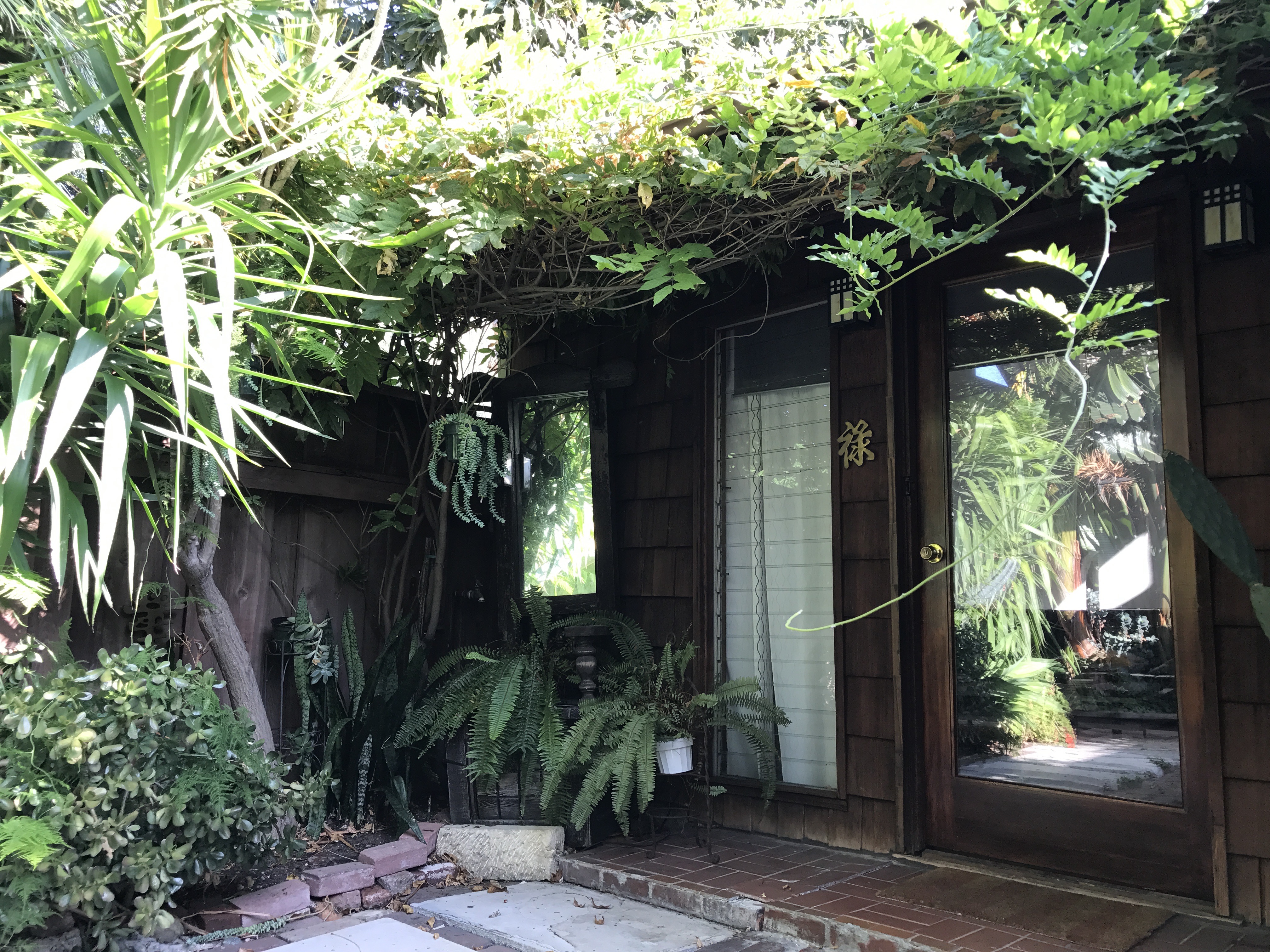
Oasis of calm – in the middle of Silverlake, Los Angeles.





